Tools Required
| • | SA9127E Gage Bar Set |
| • | SA9805E Fuel Line Separator |
Removal Procedure
- Disconnect the negative battery cable. Refer to Battery Negative Cable Disconnection and Connection .
- Disconnect the intake air temperature (IAT) sensor connector.
- Loosen the clamp at the air cleaner assembly.
- Remove the push pin attachment from the outlet resonator/duct assembly to support bracket.
- Loosen the clamp at the throttle body assembly.
- Disconnect the positive crankcase ventilation (PCV) fresh air vent hose at cam cover.
- Remove the outlet resonator/duct assembly.
- Cover the throttle body opening with a shop towel. Use shop air to remove any dirt near the transfer line connection.
- Remove any electrical harness or hoses that may be attached to the transfer line.
- Relieve the fuel system pressure. Refer to Fuel Pressure Relief .
- Disconnect the SA9127E after the pressure has been relieved.
- Disconnect the fuel rail bracket and bolt at the rear of the camshaft cover.
- Disconnect the fuel transfer at quick connect from the fuel line using the SA9805E .
- While supporting the fuel rail assembly with an open-end wrench, loosen the transfer line fitting at fuel rail.
- Remove the fuel transfer line.
- Visually inspect the O-ring seals for cuts, nicks, or flatness. Replace as necessary.
Caution: Refer to Battery Disconnect Caution in the Preface section.
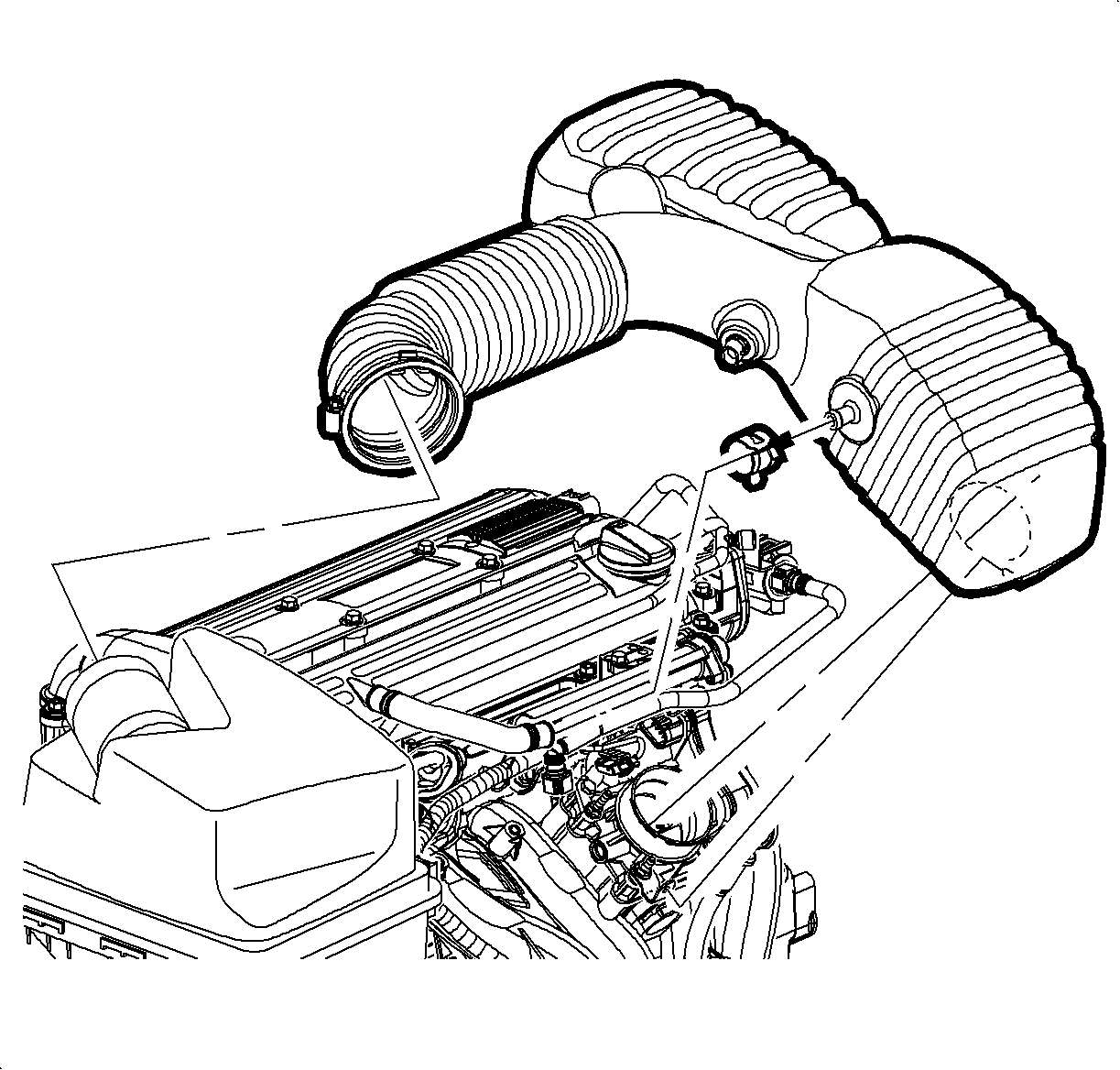
Caution: Do not allow smoking or the use of open flames in the area where work on the fuel or EVAP system is taking place. Anytime work is being done on the fuel system, disconnect the negative battery cable, except for those tests where battery voltage is required.
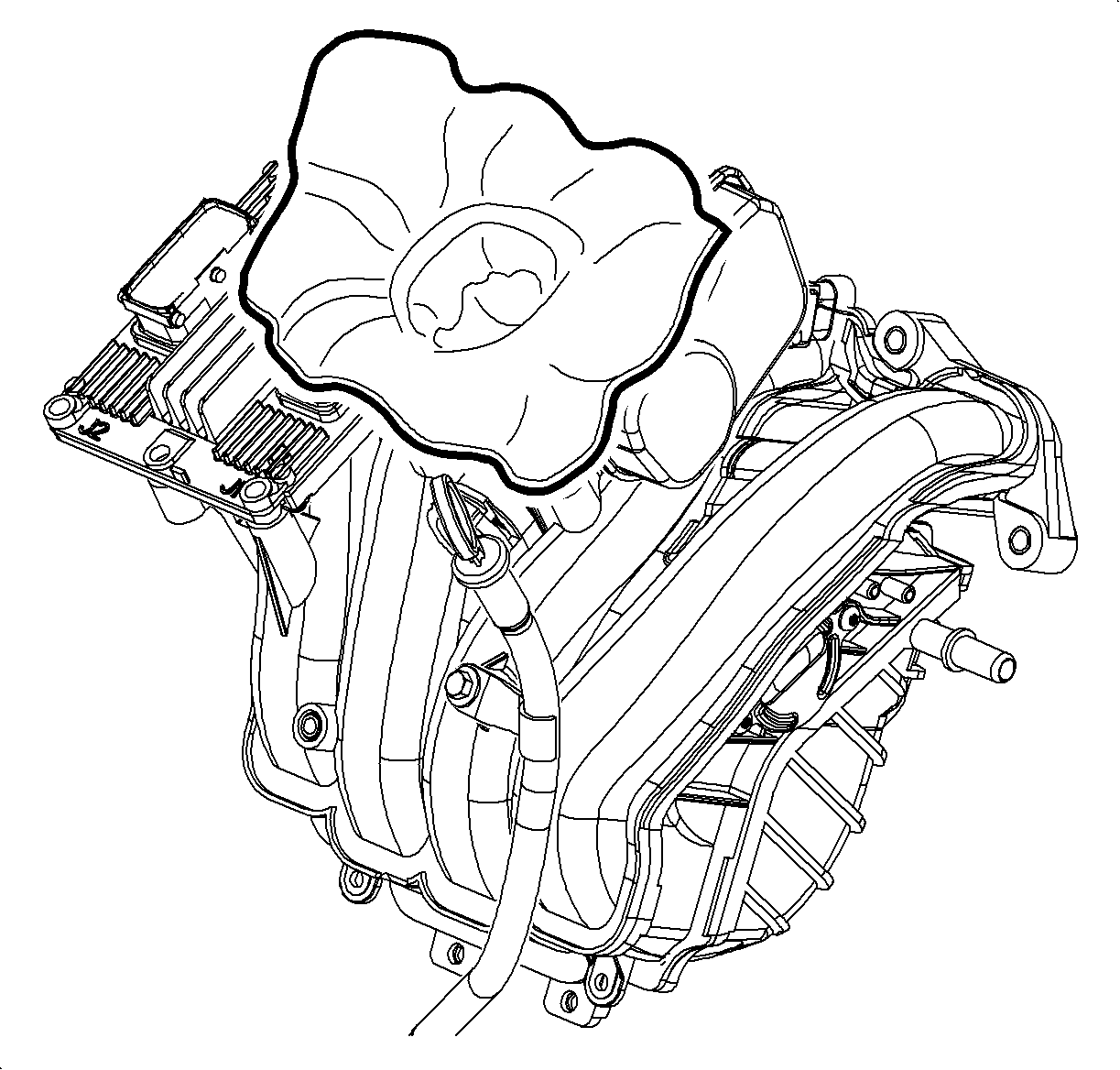
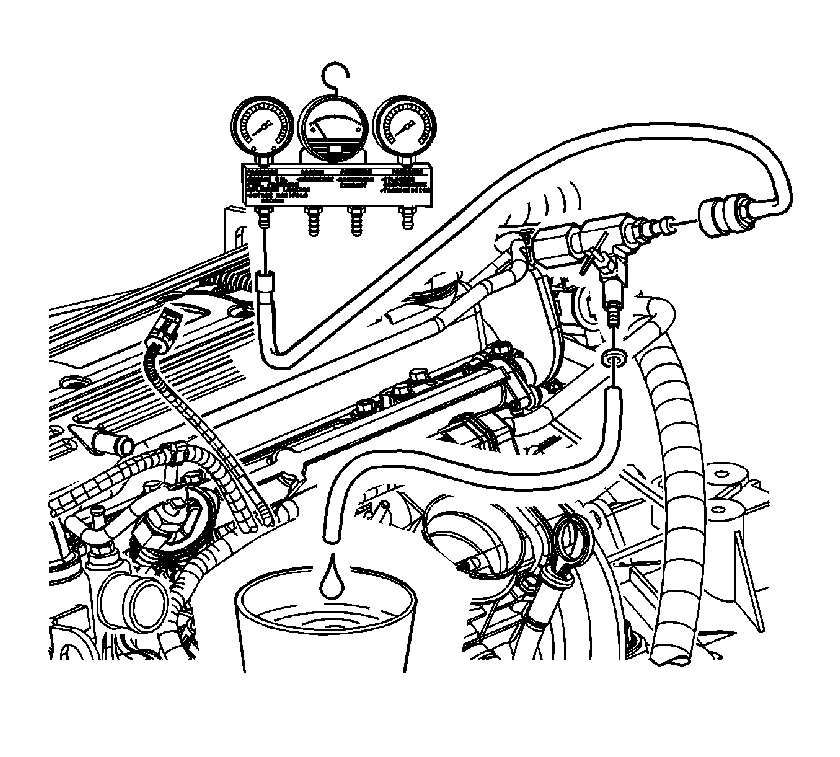
Caution: Whenever fuel line fittings are loosened or disconnected, wrap a shop cloth around the fitting to collect fuel. Place the cloth in an approved container.
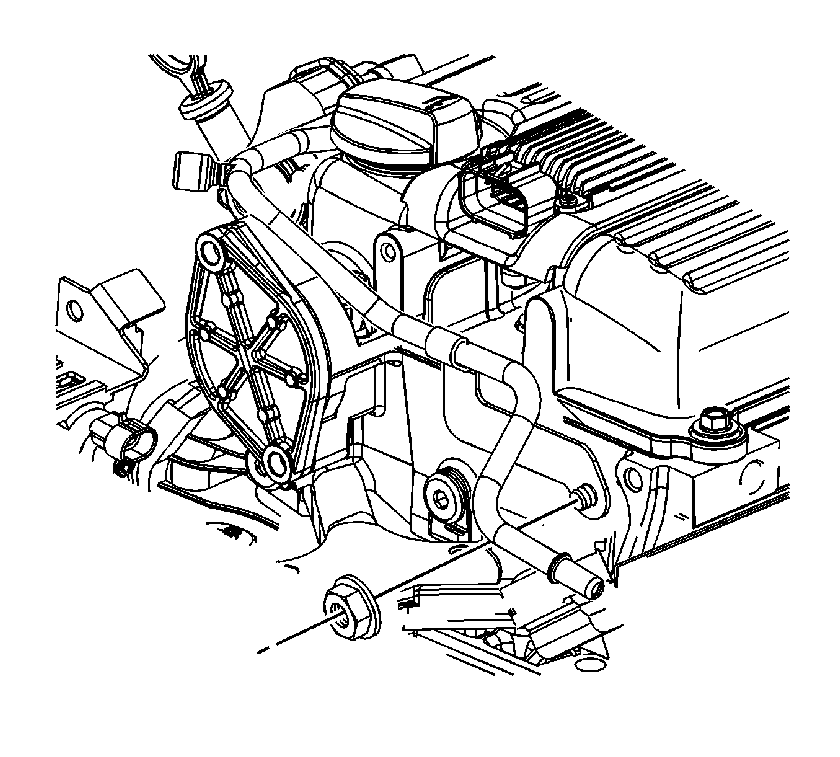
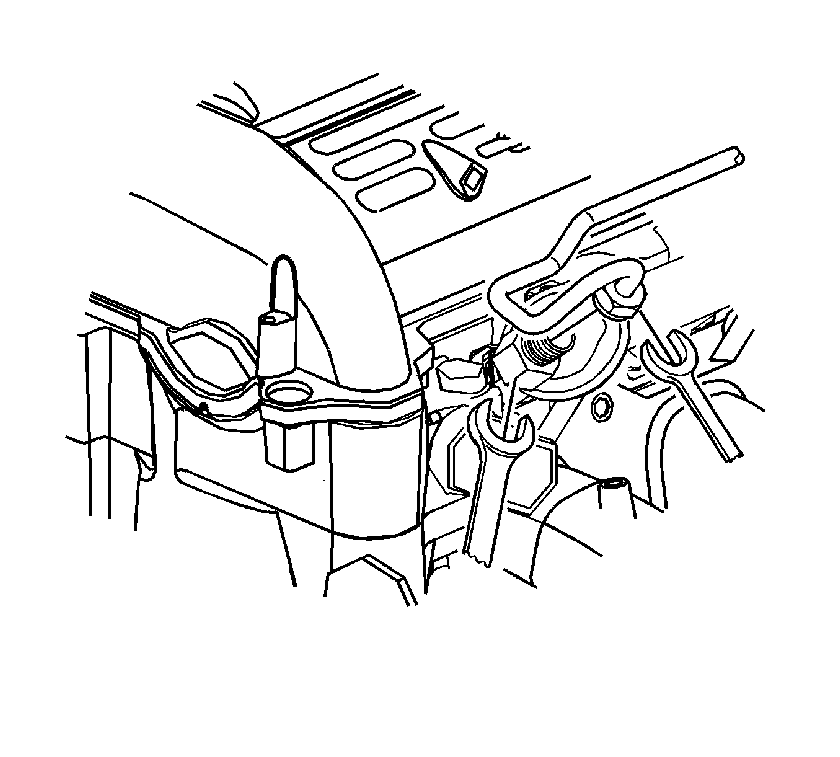
Notice: An open-end wrench must be used to support the fuel line to rail connection during loosening/tightening to avoid damaging the fuel rail assembly.
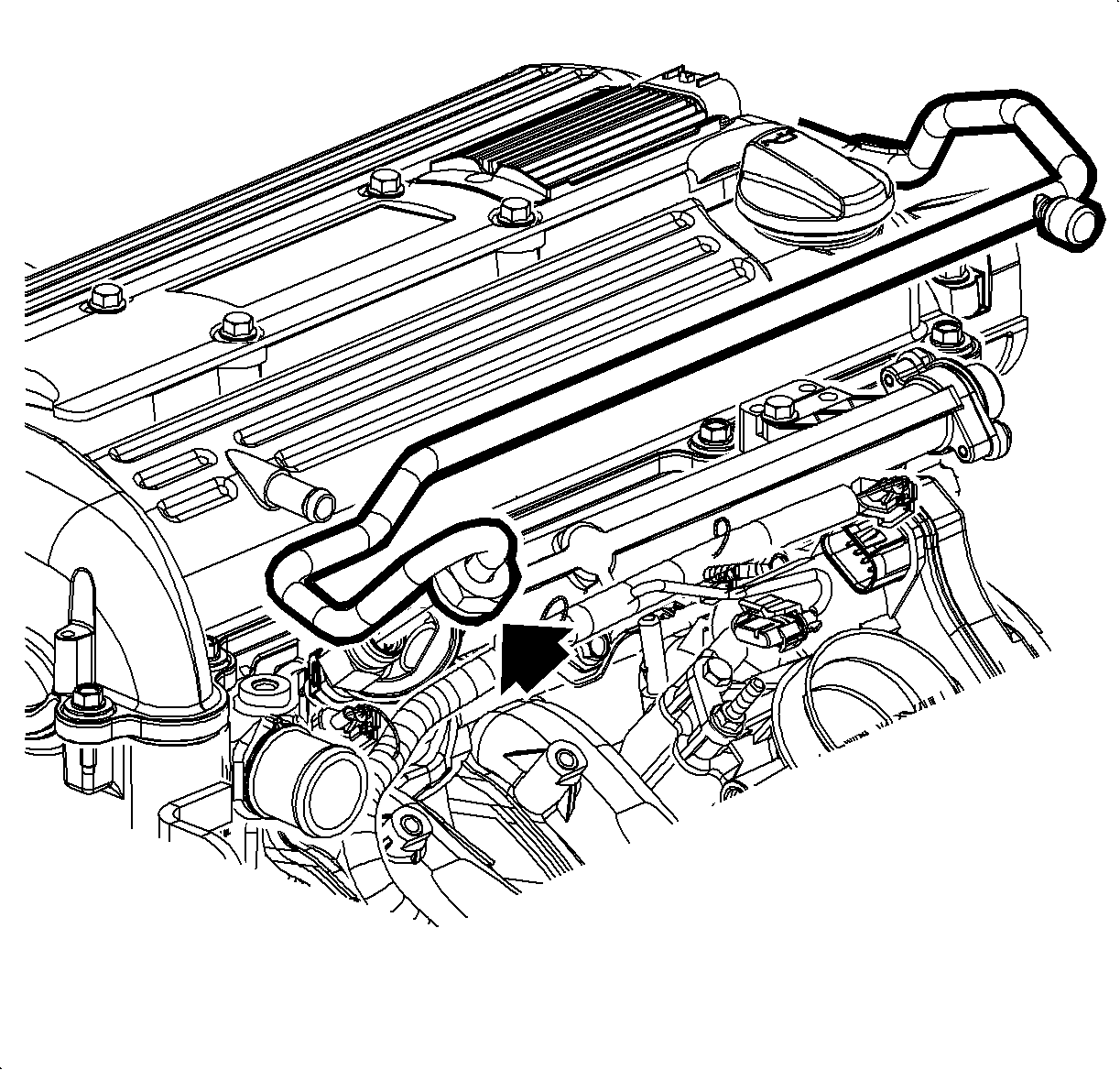
Installation Procedure
- Properly position the fuel transfer line assembly.
- Install the transfer line assembly with an O-seal to fuel rail assembly and hand tighten.
- Connect the fuel rail bracket and nut to the cylinder head.
- Tighten the transfer line fitting at fuel rail.
- Insert the fuel transfer line into the fuel line connection. An audible click should be heard. Pull rearward to fully seat the connection.
- Remove the shop towel from the throttle body.
- Connect any electrical harness or hoses that have been disconnected from the transfer line.
- Install the outlet resonator/duct assembly into position.
- Connect the PCV fresh air bent hose assembly.
- Tighten the clamp at the throttle body assembly.
- Position the outlet resonator/duct assembly up with a support bracket and install the push pin.
- Tighten the clamp at the air cleaner assembly.
- Connect the IAT sensor connector.
- Connect the negative battery cable.

Notice: Refer to Fastener Notice in the Preface section.

Tighten
Tighten the fuel line bracket-to-cylinder head bolt to 10 N·m (89 lb in).

Notice: An open-end wrench must be used to support the fuel line to rail connection during loosening/tightening to avoid damaging the fuel rail assembly.
Tighten
Tighten the fuel transfer line fitting-to-fuel rail 4 cylinder to 10 N·m (89 lb in).
Important: To assure a proper connection and to fully seat the retaining tabs, lightly pull apart the connection.

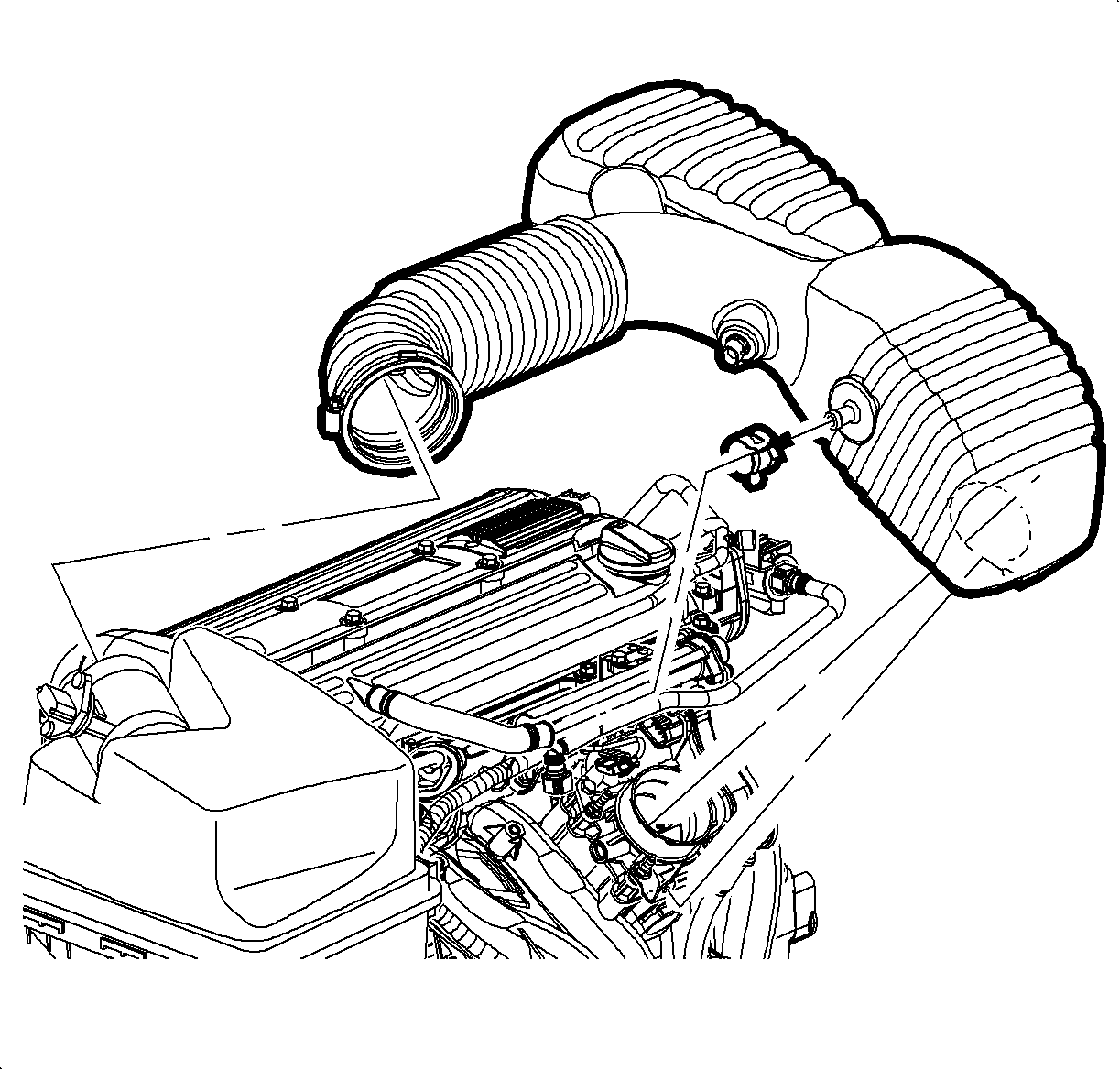
Tighten
Tighten the battery terminal bolts to 17 N·m (13 lb ft).
